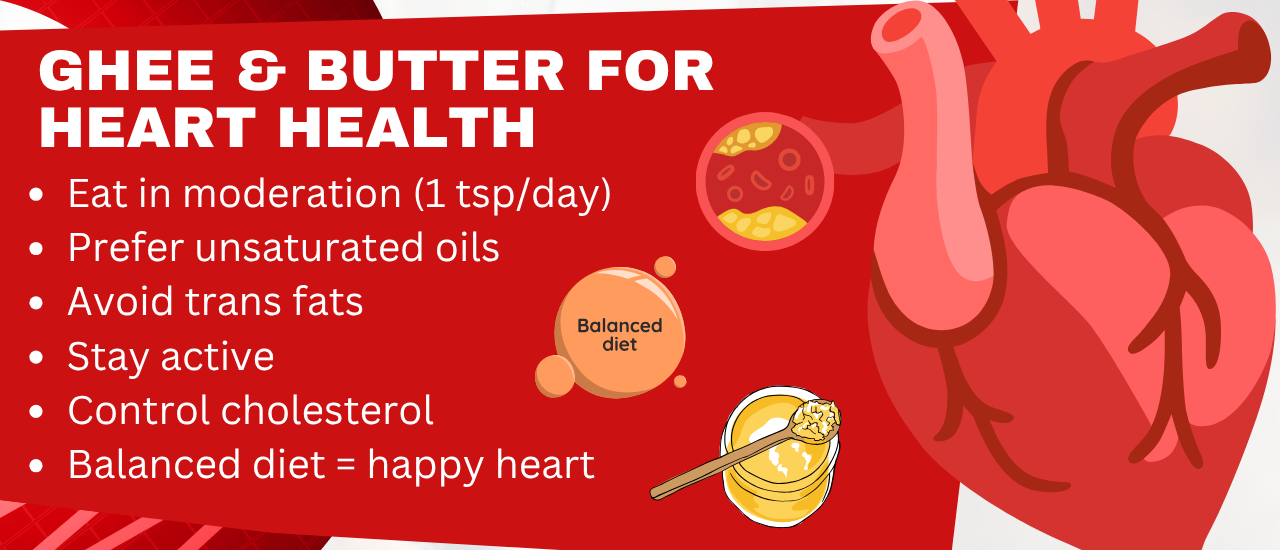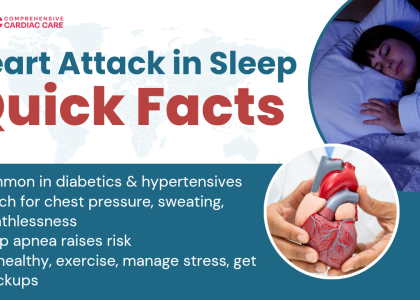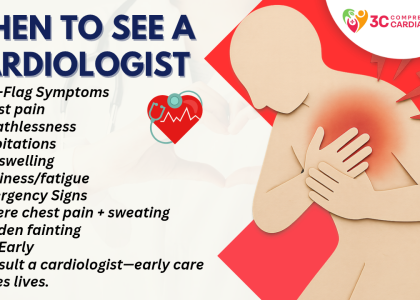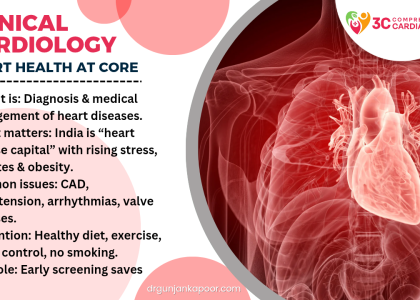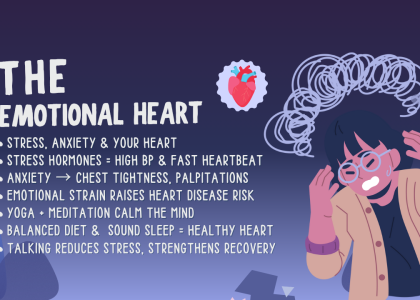For most Indians, food feels incomplete without that final touch — a spoon of ghee on dal, a dab of butter on paratha, or a bit of both on rotis and rice.
But when someone is diagnosed with heart disease or high cholesterol, this common question arises:
“Can I still eat ghee or butter?”
The answer isn’t a simple yes or no. Let’s understand what ghee and butter really are, how they affect your heart, and how you can include them wisely in your diet.
What Are Ghee and Butter Made Of?
Both ghee and butter come from milk fat, but they are slightly different in how they’re made and how they act in our body.
-
Butter: Made by churning cream or milk. It contains about 80% fat and 20% water and milk solids.
-
Ghee: Made by heating butter to remove water and milk solids. It is pure fat, mostly saturated fat, with a rich aroma and longer shelf life.
In Indian homes, ghee is often considered shuddh (pure) and is used in cooking, rituals, and even medicines in Ayurveda. But when it comes to heart health, moderation is the key.
❤️ How Fat Affects the Heart
Our body needs some fat for energy, hormone production, and vitamin absorption.
However, too much of the wrong kind of fat can block arteries, raise bad cholesterol (LDL), and increase the risk of heart attack or stroke.
Let’s understand the three main types of fats:
-
Saturated Fats – Found in ghee, butter, cheese, and meat. In excess, they raise LDL (bad cholesterol).
-
Unsaturated Fats – Found in nuts, seeds, olive oil, mustard oil, and fish. These help increase HDL (good cholesterol).
-
Trans Fats – Found in bakery items, fried snacks, and packaged foods. These are worst for heart health and should be completely avoided.
So, both ghee and butter are high in saturated fats. But small, controlled amounts may not be harmful — especially if your overall diet is balanced and healthy.
What Happens When You Eat Too Much Ghee or Butter
Eating excessive amounts of ghee or butter can lead to:
-
Increased LDL (bad cholesterol)
-
Clogged arteries (atherosclerosis)
-
High blood pressure
-
Higher risk of heart attack or stroke
-
Weight gain, especially around the belly
These risks are even higher for people who already have:
-
Heart disease
-
Diabetes
-
High cholesterol
-
Family history of cardiac problems
So, if you have heart issues, you shouldn’t completely banish ghee — but you must use it very wisely.
Ghee and Butter in the Indian Context
Indian cooking is unique. We often use ghee in small quantities for flavor, cooking dal, or roasting chapatis. Traditional diets — when balanced with vegetables, pulses, and whole grains — can still be heart-friendly.
The problem starts when:
-
We add too much ghee or butter on top of already oily food
-
Combine it with refined carbs (like parathas made of maida or white rice)
-
Have very little physical activity
In rural India, people traditionally ate ghee but also had active lifestyles — walking long distances and doing physical labor. Today’s sedentary life makes even small dietary excesses risky.
️ How Much Ghee or Butter Is Safe?
According to nutrition experts, a healthy adult can consume about 1–2 teaspoons (5–10 grams) of ghee or butter per day — if the rest of the diet is low in oil and fried food.
For people with heart disease, it’s best to:
-
Limit ghee or butter to less than 1 teaspoon a day
-
Prefer unsaturated fats (like mustard oil, olive oil, or sunflower oil) for cooking
-
Avoid adding extra ghee on cooked food
-
Don’t mix multiple sources of fat in one meal (e.g., oil + butter + cheese)
Smart Alternatives for Heart Patients
Here are some healthier fat options that protect the heart and still add flavor:
-
Mustard oil (sarson ka tel): Rich in monounsaturated fats; great for Indian cooking.
-
Olive oil: Ideal for salads or light sautéing.
-
Groundnut or sunflower oil: Can be used occasionally.
-
Nuts and seeds: Almonds, walnuts, flaxseeds, and chia seeds provide heart-friendly omega-3 fats.
-
Avocado (if available): Another good source of healthy fat.
How to Keep Your Heart Healthy — Beyond Diet
Even if you eat perfectly, your heart still needs support from your lifestyle.
Here are some habits to protect your heart health:
-
Exercise daily: 30–45 minutes of brisk walking, yoga, or cycling keeps your heart strong.
-
Avoid smoking and limit alcohol: Both weaken blood vessels and increase cholesterol.
-
Eat fiber-rich foods: Whole grains, salads, fruits, and dals help remove excess fat from the body.
-
Sleep well: 7–8 hours of quality sleep helps regulate blood pressure and stress.
-
Manage stress: Deep breathing, meditation, or hobbies can help reduce stress-related heart problems.
-
Get regular checkups: Blood pressure, cholesterol, and sugar levels should be monitored every 6–12 months.
What About Desi Ghee in Ayurveda?
In Ayurveda, ghee is considered a healing fat — good for digestion, immunity, and brain health.
However, even Ayurvedic experts recommend moderation, especially for those with heart disease, obesity, or high cholesterol.
The key difference is quality and quantity:
-
Use cow ghee (A2 or desi ghee) instead of commercial or hydrogenated ghee.
-
Always use small amounts — enough to flavor food, not drown it.
Remember: Even healthy foods become unhealthy when eaten in excess.
Quick Summary
| Aspect | Ghee | Butter |
|---|---|---|
| Type of Fat | Saturated | Saturated |
| Cholesterol Impact | Raises LDL (bad) | Raises LDL (bad) |
| Heart-Friendly in Small Amounts | ✅ Yes, if limited | ⚠️ Very limited |
| Daily Limit | 1 tsp (heart patients) | ½ tsp (heart patients) |
| Healthier Alternatives | Mustard oil, olive oil, nuts | – |
Key Takeaway
You don’t need to completely stop ghee or butter if you have heart disease — but you must use them in very small quantities, and balance your diet with plenty of vegetables, fiber, and exercise.
Think of ghee and butter as flavor enhancers, not main ingredients.
A little on your roti is fine — a spoonful floating on your dal is not.
⚕️ Final Word
Your heart health is shaped by your daily habits, not just one food item.
A spoon of ghee once in a while won’t harm you — but a lifestyle full of oily foods, no exercise, and high stress definitely will.
So, enjoy your meals, but remember:
“Thoda ghee zaroori hai, zyada ghee zaroori nahi.”

